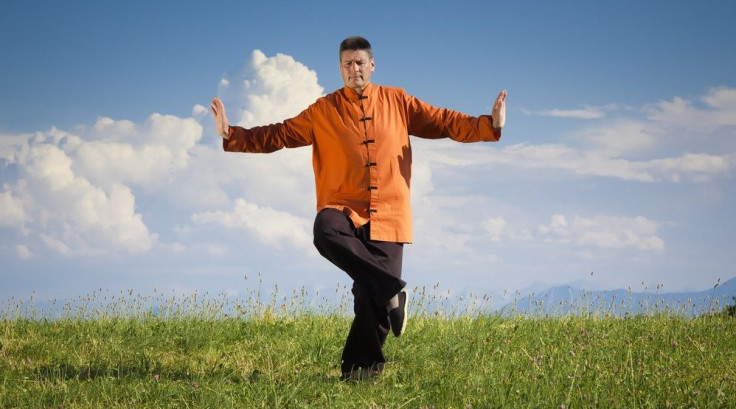Positive Thinking About Aging Helps Adults Become Fit, Feel Younger; Ending Stereotypes Is Key

Positive stereotypes when it comes to aging are few and far between; I guess the word “stereotypes” says as much. But a new study published in Psychological Science found that a lack thereof is what leads to negative outcomes.
Researchers split 100 participants between ages 61 and 99 (!) into four groups. One group served as a control, while one underwent an implicit intervention, another underwent an explicit intervention, and the last underwent a combination of the two. Implicit intervention meant participants were shown combination words, like “wise and senior” or “spry and old,” while explicit groups were ask to write about fit and active older adults. After four weeks, each group completed physical tests measuring their ability to walk, balance, and get up from a chair. While the explicit groups didn’t show any improvement, the implicit group did.
"The challenge we had in this study was to enable the participants to overcome the negative age stereotypes which they acquire from society, as in everyday conversations and television comedies," said Becca Levy, lead study author and director of the Social and Behavioral Science Division at Yale, said in a press release. "The study's successful outcome suggests the potential of directing subliminal processes toward the enhancement of physical function."
By strengthening participant’s positive age stereotypes, researchers strengthened their positive self-perceptions and physical function, too. Outside this study, positive thinking has been thought to prevent childhood depression, poor heart-health, and breast cancer. Better yet, the Huffington Post cited a Texas A&M study that found older adults felt an average of five years older after taking a simple memory test.
"Previous work shows that how old one feels — one's subjective age — predicts significant health outcomes, even better than one's chronological age predicts these outcomes," Lisa Geraci, lead study author, said in a press release. "These new results are exciting because they suggest that subjective age is malleable, and that we may be able to change subjective age and influence older adults' cognition and behavior."
The longer Americans live, the more time they’re faced with stereotypes related to getting older. Of course it’s easier to think negatively, but it’s just as easy to think positively. Mark Jacobson may have said it best when he wrote in New York magazine, “Like Diana Nyad swimming 103 miles from Cuba, hardly a day goes by without a story detailing the spectacular exploits of the advanced in age. After all, anyone can be cool and powerful in their 20s. To be cool and powerful in your 60s and beyond — that’s the real rabbit in the hat.”
Source: Levy B, Pilver C, Chung P, Slade M. Subliminal Strengthening Improving Older Individuals’ Physical Function Over Time With an Implicit-Age-Stereotype Intervention. Psychological Science, 2014.



























